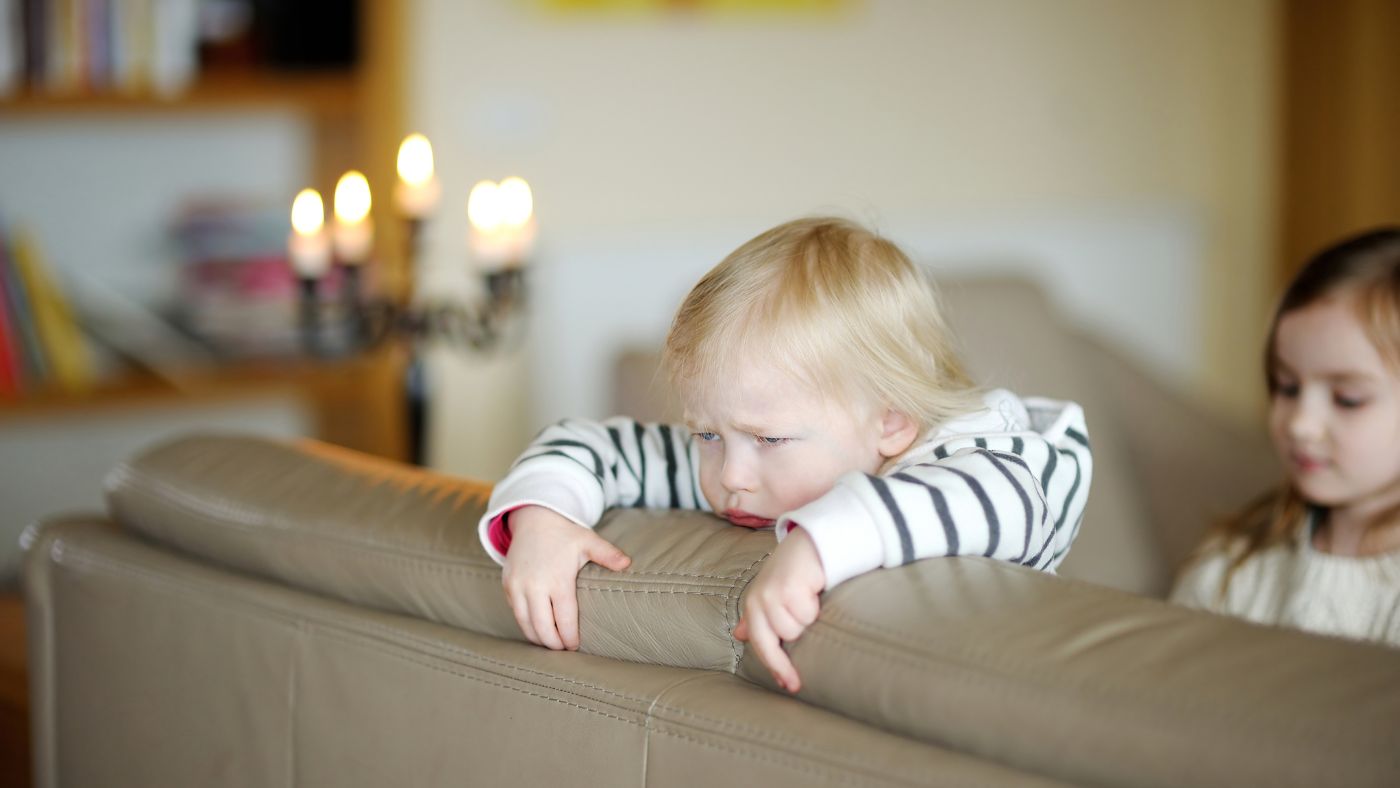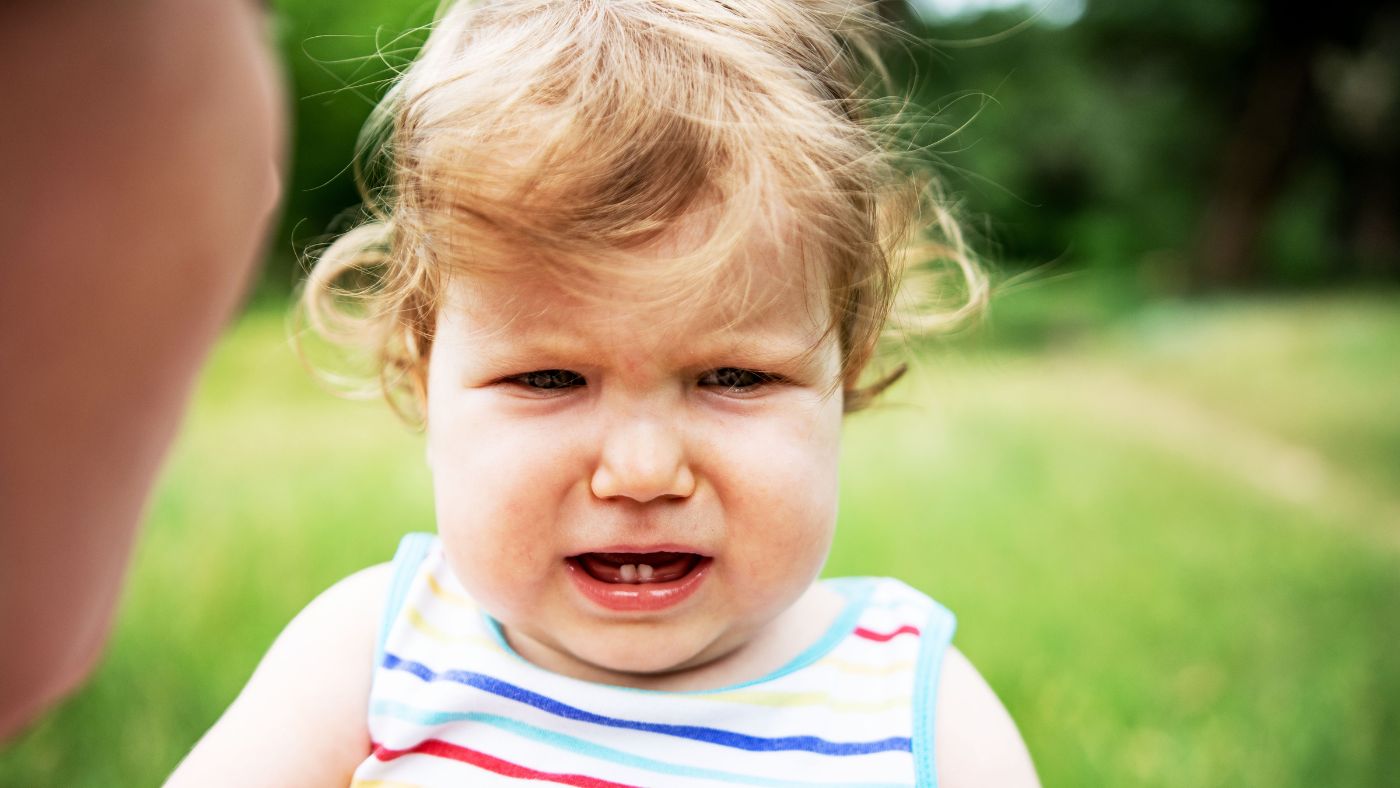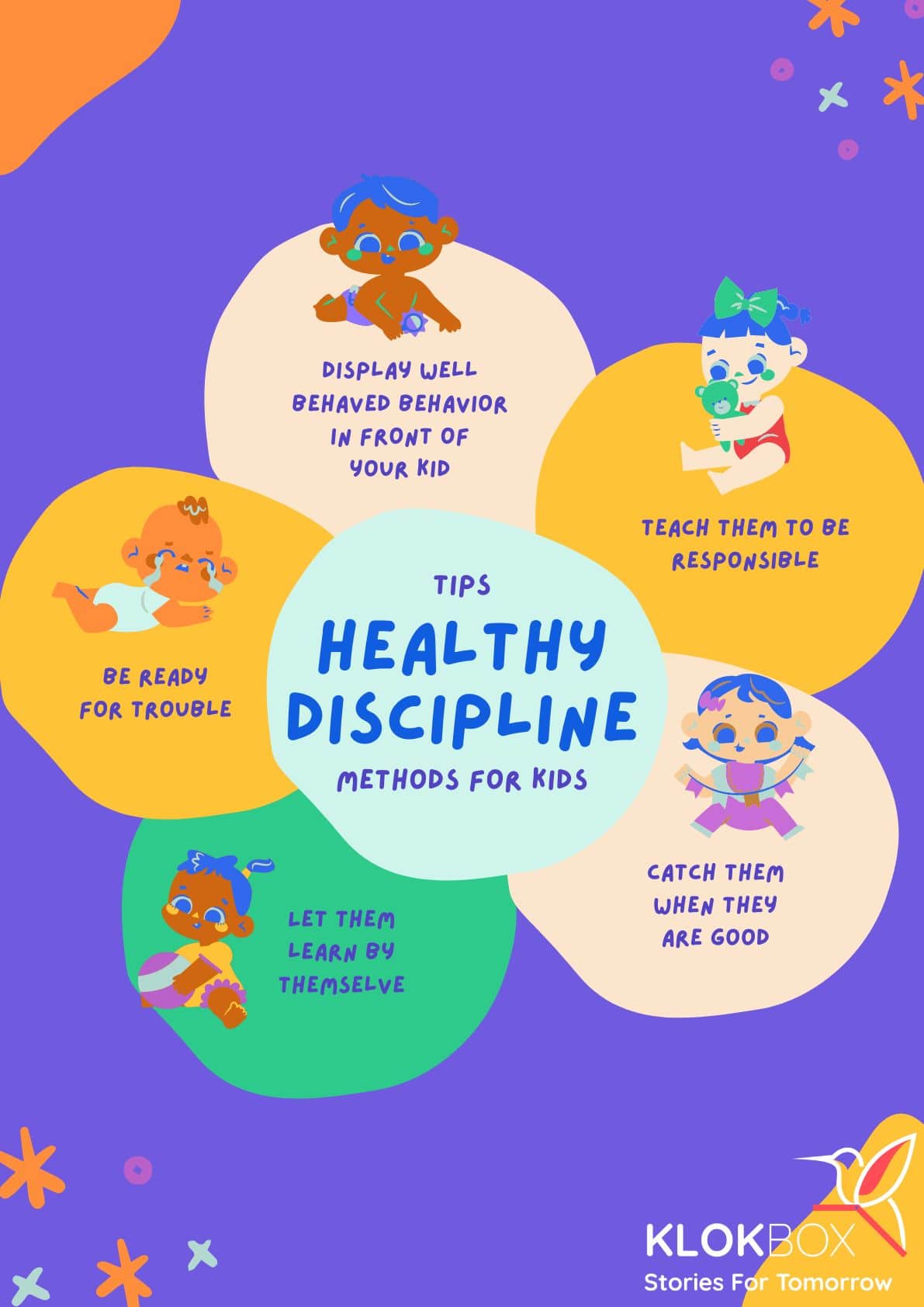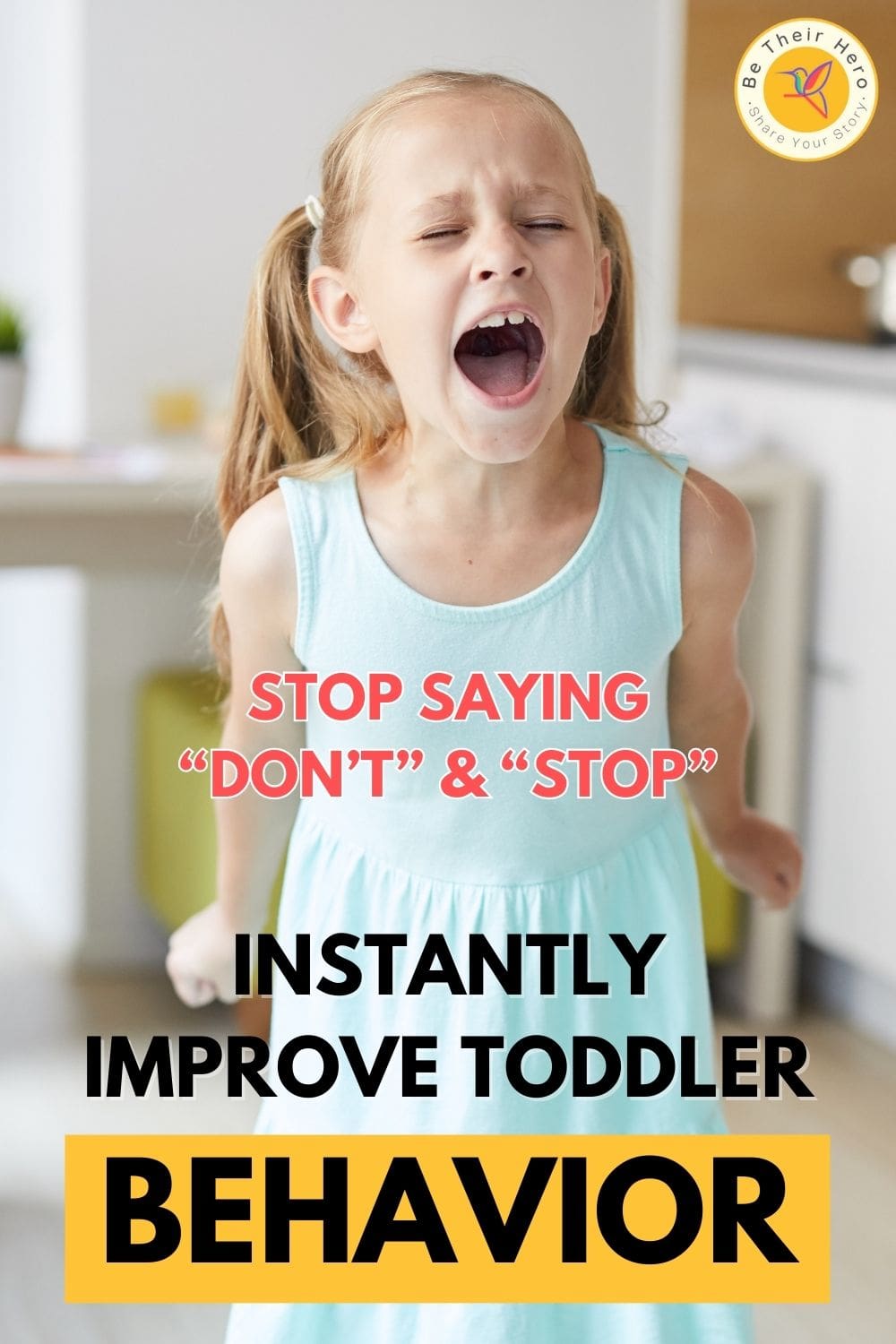How to instantly improve toddler behaviour and why saying “No”, “Stop” and “Don’t” makes it worse. As parents, disciplining your toddler can be a challenging experience. Phrases you may often find yourself using when trying to stop undesirable behaviour are “no,” “stop,” or “don’t.” However, this approach can have the opposite effect, actually encouraging your toddler to continue and even increase the undesirable behaviour. In this blog post, we will discuss effective ways to discipline your toddler, and more importantly, what you should do and say instead. Before we dive into the topic, make sure you click on the free PDF document in the description box below, which provides a guide to the developmental milestones you can expect during your baby’s first year of life.

Key Takeaways
The Problem: Saying “No,” “Stop,” or “Don’t”
Parents frequently resort to using “No,” “Stop,” or “Don’t” when trying to discipline their children, often accompanied by loud voices and animated expressions. While it is natural to use these phrases in order to assert authority and maintain control, consistently relying on them can lead to unintended consequences. Instead of effectively teaching your child the desired behaviour, using these negative commands may reinforce undesirable actions by turning the situation into a game or a source of attention.
Children, especially younger ones, crave attention and validation from their parents. When they hear “No,” “Stop,” or “Don’t” in a loud and forceful tone, they may interpret this as attention, even if it is negative. As a result, they may continue to engage in undesired behaviour in order to receive more attention or to test the boundaries set by their parents. This can create a negative feedback loop, making it harder for the child to learn appropriate behaviour and for the parent to establish effective discipline strategies.
Understanding the Difference Between Discipline and Punishment: A Key to Effective Parenting
As a parent, it’s essential to recognize the difference between discipline and punishment to give your child the best chance to grow and develop in a healthy and positive environment. While the terms may seem interchangeable, they represent distinctly different approaches to teaching children. Discipline aims to guide and help your child learn from their mistakes, fostering self-control and promoting better decision-making in the future. It is a proactive method that focuses on teaching the child what they should do, rather than merely reacting to misbehaviour.
Should You Discipline Your Child?
For example, you might give your toddler a time-out to reflect on their actions and understand the consequences of their behaviour. On the other hand, punishment is a reactive approach that often involves imposing consequences or penalties, such as scolding or taking away privileges, in response to an undesirable action. It may temporarily stop the unwanted behaviour but does not necessarily teach the child why their actions were wrong or how to improve. By understanding these distinctions, you can more effectively address your child’s needs and help them develop essential life skills, promoting a stronger and more trusting parent-child relationship.

Improve Toddler Behaviour:
Remain Calm and Teach Alternative Behaviors
One of the most effective ways to make your toddler stop the undesired behaviour is to stay calm and composed when addressing them. This approach can help prevent temper tantrums and reinforce good behaviour instead. Here are some tips to help you discipline your toddler without resorting to “no,” “stop,” or “don’t”:
- Teach alternative behaviours. Instead of just telling your child what not to do, show them what they should be doing. For example, if your toddler is throwing blocks, calmly demonstrate how to stack the blocks or place them in a container.
- Reward good behaviour. Praising and reinforcing desirable behaviours can encourage your toddler to repeat them. Smiling, clapping, or offering a small treat can help reinforce good behaviour and discourage tantrums.
- Use natural consequences. Rather than resorting to time-outs, use natural consequences to teach your child the appropriate behaviour. If your toddler continues to throw blocks after you’ve shown them the proper way to play with them, calmly explain that the blocks will be put away if the throwing continues.
- Remain consistent. Consistency is key when disciplining your toddler. Make sure you respond in the same way each time your child misbehaves, which will help them learn what is expected of them.
Strategies To Improve Toddler Behaviour: Encourage Positive Change in Your Child
When it comes to addressing undesirable toddler behaviour in your child, finding the right approach can be challenging. One of the most effective methods for promoting positive change is to praise your child when they demonstrate appropriate behaviour. By acknowledging and reinforcing their good actions, you create an environment that encourages them to continue on this path. Keep in mind that your child gets their cues from you, so it is crucial to model the behaviour you expect from them. If your little one exhibits behaviour that is unacceptable, calmly and firmly explain why their actions are not appropriate and guide them towards a more suitable alternative.
Should You Give Your Child A Reward?
Remember that your toddler wants your attention and approval, so responding with anger or frustration to their behaviour may inadvertently reinforce it. Instead, focus on providing clear and consistent guidance, coupled with positive reinforcement, to help your child understand the desired behaviour and work towards achieving it. With patience, understanding, and a supportive approach, you can foster lasting improvements in your child’s behaviour and contribute to their overall growth and development.

Develop Toddler Behavior: Choose Encouraging Words Over “Don’t” & “Stop”
Addressing the Root Causes of Misbehavior: A Crucial Step in Effective Parenting
While it’s essential to correct your child’s misbehaviour, it’s equally important not to ignore the underlying reasons for their actions. Your child may be acting out due to unmet needs, frustration, or stress, and understanding these factors can help you address the core issues more effectively. Instead of merely telling your child that their behaviour is unacceptable, take the time to understand what is driving them to act this way. In some cases, you may need to catch your child before they engage in aggressive or dangerous behaviour, ensuring their safety while also exploring the reasons behind such actions.
Your Little One Wants And Needs Your Attention
By identifying and addressing the root causes of your child’s misbehaviour, you’ll be better equipped to guide and support them towards positive behaviour. Helping your toddler cope with their emotions and teaching them healthier ways to express themselves will not only improve their behaviour but also foster a stronger and more trusting parent-child relationship. By focusing on the source of the problem and providing the necessary support, you can empower your child to overcome their challenges and make lasting, positive changes in their behaviour.

Instantly Improve Toddler Behavior. Stop Saying “Don’t” & “Stop”
In conclusion
Disciplining your toddler can be challenging, but by remaining calm, teaching alternative behaviours, and using natural consequences, you can effectively guide your child towards good behaviour. Stay consistent in your approach, and don’t forget to reward good behaviour when it occurs. Keep an eye out for next week’s parenting tips and tricks to help you continue navigating the world of toddler discipline.
Navigating the world of toddlerhood can be incredibly demanding, yet it’s also filled with precious moments that are both significant for their development and highly amusing for parents. Toddlers often surprise us with their unique observations, creative language, and hilarious inquiries. Save those precious moments on Klokbox, one memory at a time.
In our latest blog post, we’ve compiled 10 of the Funniest Parenting Videos to remind you that you’re not alone in this journey! Also, don’t forget to subscribe to our Parenting Newsletter, where we’ll deliver a delightful mix of parenting humour, helpful tips, and practical advice straight to your inbox.



